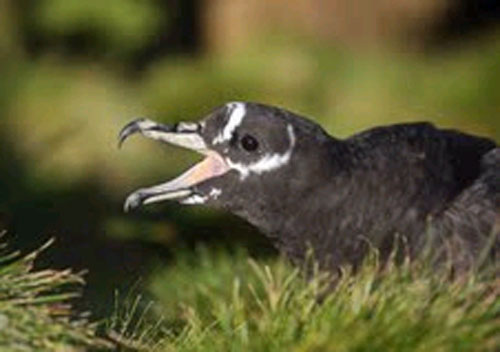Peter Ryan (FitzPatrick Institute, University of Cape Town, South Africa) and Rob Ronconi (Department of Biology, Dalhousie University, Canada ) write on-line in the journal Antarctic Science of the latest survey of the numbers of breeding Spectacled Petrels Procellaria conspicillata, an-ACAP listed and Vulnerable species endemic to the South Atlantic island of Inaccessible (a World Heritage Site) in the Tristan da Cunha Group.
The paper's abstract follows:
"Until recently, the spectacled petrel Procellaria conspicillata Gould was listed as Critically Endangered due to its small population size and ongoing incidental mortality on fishing gear. Surveys at its sole breeding locality, Inaccessible Island in the central South Atlantic Ocean, indicated that the population increased from 1999-2004, resulting in the species being down-listed to Vulnerable. We repeated the census of breeding spectacled petrels during the early incubation period in October-November 2009. Numbers of burrows increased by 55% from 2004-09, with increases in all count zones, and the greatest changes in peripheral populations. Burrow occupancy estimates remained high, averaging 81% during one-off checks. Our best estimate of the population in 2009 was 14 400 pairs, continuing the c. 7% per year increase inferred since the 1930s following the disappearance of introduced pigs. This confirms the rapid recovery of this species despite ongoing mortality on fishing gear. Our results suggest that at least some procellariiforms are able to sustain strong growth rates in the face of fishing mortality when colony based threats are removed."

Click here for an earlier ACAP news item on the Spectacled Petrel.
Reference:
Ryan, P.G. & Ronconi, R. 2011. Continued increase in numbers of spectacled petrels Procellaria conspicillata. Antarctic Science DOI: 10.1017/S0954102011000071.
John Cooper, ACAP Information Officer, 4 March 2011

 English
English  Français
Français  Español
Español